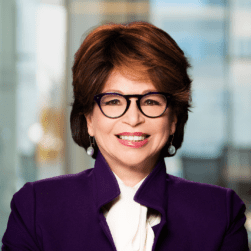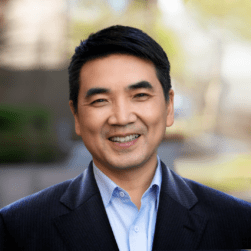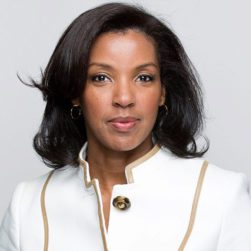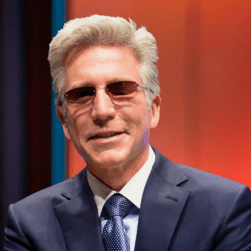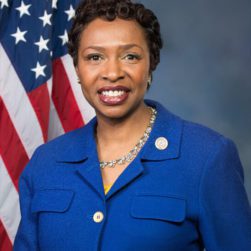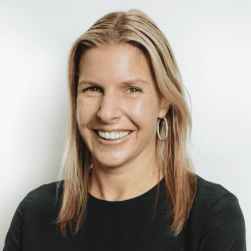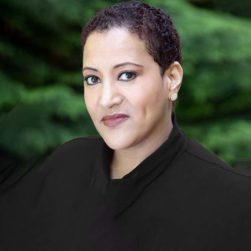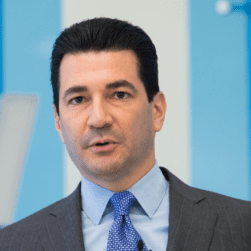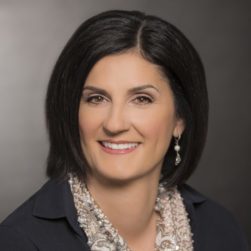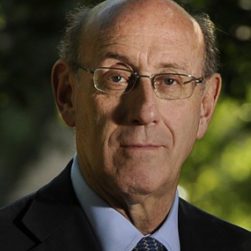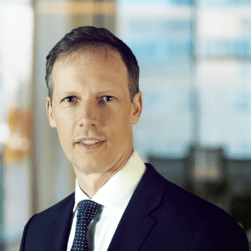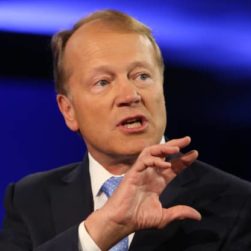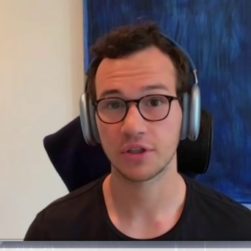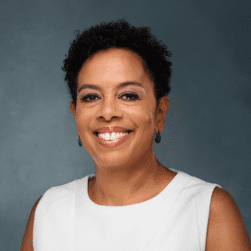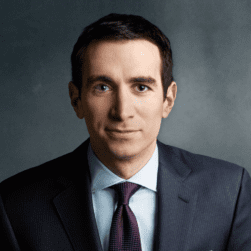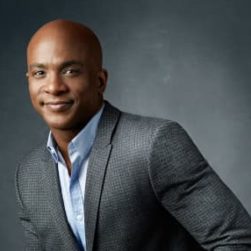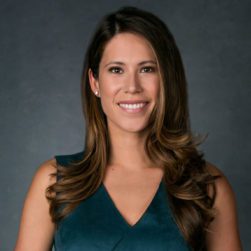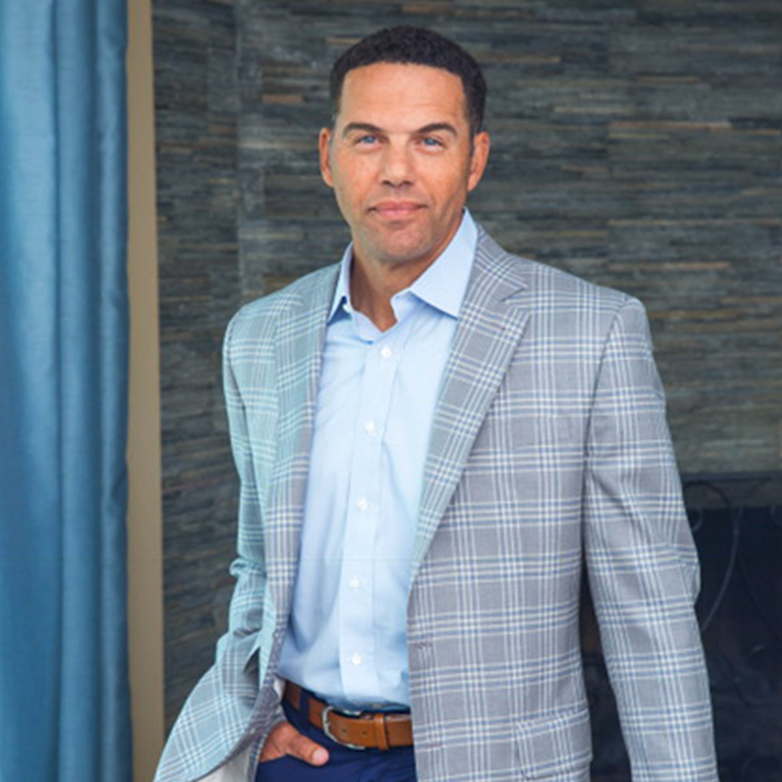
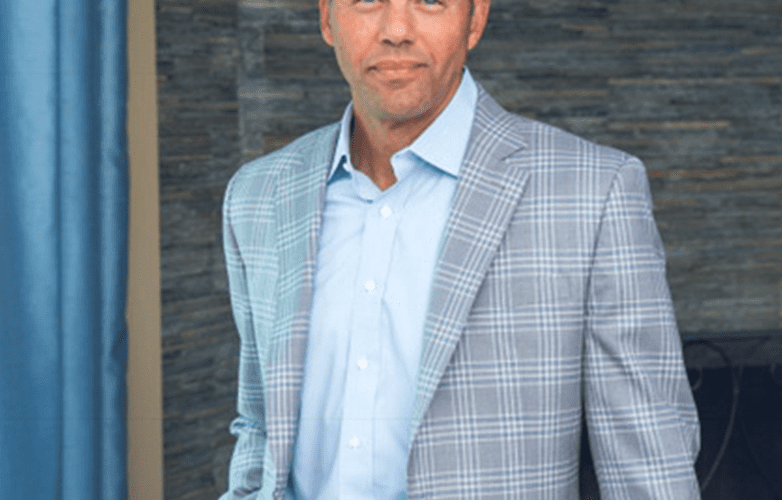
2nd Annual WEC Summit
Host
Tyler Mathisen, CNBC "Power Lunch" Co-Anchor and Vice President, Events Strategy
Speakers
Joseph Allen, Harvard T.H. Chan School of Public Health Associate Professor and Harvard Healthy Buildings Program Director
Masheika Allgood
Jared Bernstein, White House Council of Economic Advisers Member
Nicholas Bloom, Stanford University Professor of Economics
Heidi Brooks, Yale School of Management Senior Lecturer in Organizational Behavior
Lawrence O. Gostin, Georgetown University Professor, Founding O’Neill Chair in Global Health Law; World Health Organization Center on National and Global Health Law Director
Steve Pemberton, Workhuman Chief Human Experience Officer
Betsey Stevenson, University of Michigan Professor of Public Policy, Professor of Economics
2nd Annual WEC Summit
The way we approach work is changing before our eyes. Technological advances, demographic shifts and new perspectives on the employee/employer relationship have led to a major cultural shift when it comes to the workforce. The Workforce Executive Council Virtual Summit convened WEC members to discuss key program themes, including the future of work, employee engagement and talent development, and diversity and inclusion. Chief human resource officers, diversity and inclusion leaders, and top talent and benefits executives often are the guardians of a company’s culture. They face a delicate balancing act, and the stakes are high. The role of the HR executive never has been more challenging — and the opportunities more exciting. As corporations and financial markets place more value on human capital concerns like stakeholder capitalism, corporate culture and jobs of the future, it’s clear that senior Human Resources Officers will be central to redefining how businesses survive and thrive in the next era.
Key Points
- The labor shortage and what it will take for companies to attract and retain talent remains top-of-mind for WEC members. Betsey Stevenson, a professor of economics and public policy at the University of Michigan, encouraged council members to invest in workplace flexibility and focus on the humanity of their workers to reinvigorate current employees and attract new ones. “People are reevaluating their jobs and lives. They figured out what they really want, so they’re searching for something different,” she told CNBC’s Sara Eisen.
- Flexibility is the key to keeping both sides engaged, said Nicholas Bloom, Stanford University Professor of Economics, in conversation with CNBC’s Dominic Chu. Bloom said 40% of the U.S. workforce is going utilize some type of hybrid work option, whether employees are coming into the office 2 or 3 days per week.
- In a hybrid space, Brooks said companies can foster a culture of learning across all levels of employment to facilitate this transition. “It's a huge time for learning because everyone knows that we haven't been around this corner. Hybrid work is new for us,” Brooks said.
- “Vaccines and economic progress, revenue growth, income growth, wage growth, jobs, GDP industrial production; every variable that I look at seems highly and positively elastic to wiggles in the [Covid-19] caseload,” Jared Bernstein, White House Council of Economic Advisers Member, said to Kayla Tausche, CNBC Senior White House Correspondent.
- According to Masheika Allgood, AllAI Consulting Founder, HR professionals should acquire three skills when it comes to AI: understand what it is, what it’s good at, and what its limitations are. “When it comes to AI, there's this hands-off fear,” Allgood said. “Like, ‘No, the data scientists know best.’ They know how to code, but they don't know what you know.”
- Alison Borland, Alight EVP, Wealth Solutions and Strategy, in a conversation with Devin Banerjee, LinkedIn Editor at Large stated that wellbeing can be defined in four dimensions: a healthy body, healthy mind, healthy wallet and healthy life.
- With a recent vaccine mandate for federal workers, larger companies with 100 or more employees may soon mandate vaccinations or routine testing against Covid-19. This may lead to more employees getting vaccinated to avoid the time, cost and hassle of regular testing, said Lawrence O. Gostin, Georgetown University Professor, Founding O’Neill Chair in Global Health Law; World Health Organization Center on National and Global Health Law Director, in a conversation with CNBC’s Contessa Brewer.
- “Greater ventilation leads to significantly better cognitive function performance of employees,” Joseph Allen, Harvard T.H. Chan School of Public Health Associate Professor and Harvard Healthy Buildings Program Director, said to CNBC’s Meg Tirrell “It is good for worker health, productivity and performance.”
- Steve Pemberton, Workhuman Chief Human Experience Officer and author of “The Lighthouse Effect: How Ordinary People Can Have an Extraordinary Impact in the World,” in a conversation with CNBC’s Sharon Epperson shared “When you work in human resources, you are, in essence, the people who take care of people and you get to see all these human stories." “Perhaps as you are navigating your own daily life, you are being a lighthouse to someone else who might draw strength and courage and conviction just from your presence,” he told WEC members.


How Are You Doing? A New Approach to Tackle the Burnout Crisis
Host
Sharon Epperson, CNBC Senior Personal Finance Correspondent
Speakers
Jennifer Moss, Author of The Burnout Epidemic: The Rise of Chronic Stress and How We Can Fix It
How Are You Doing? A New Approach to Tackle the Burnout Crisis
How are you doing? A new approach to tackle the burnout crisis with Jennifer Moss, author of "The Burnout Epidemic: The Rise of Chronic Stress and How We Can Fix It", and CNBC's Sharon Epperson.
Key Points
- To change the workplace culture that causes employee burnout, companies must first separate their well-being strategy and burnout prevention strategy. One is more upstream, looking at macro causes and fixing them, while the other promotes motivation,” says Jennifer Moss, author of “The Burnout Epidemic: The Rise of Chronic Stress and How We Can Fix It”.
- According to Moss, create psychological safety and a safe space for employees through a diverse work team with different perspectives.
- “Instead of recycling the same content, brief weekly team meetings must provide transparent communication reflecting on how the team worked together that week and how to collectively improve moving forward,” states Moss.
- A certain comfort level must be established for employees to understand that their mental health is valued in the company. Therefore, executives must set the tone and display through their personal workstyle that mental health should be a priority for everyone. “Simple, thoughtful actions done with repetition equal positive well-being outcomes,” says Moss.
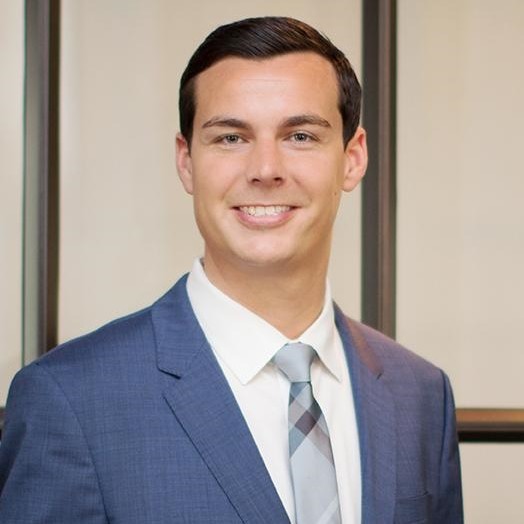

Recruiting, Retaining, and Returning to the Workplace
Host
Jen Geller, CNBC Senior Councils Editor
Speakers
DJ Casto, Synchrony EVP & Chief Human Resources Officer
Tanya Harris, RealTruck Executive Director, Human Resources
Nickle LaMoreaux, IBM Senior Vice President & Chief Human Resources Officer
Recruiting, Retaining, and Returning to the Workplace
The start of Septembr was critical in how companies navigate vaccine requirements, masking, and the return to the office. As summer winds down and fall kicks into action, we invite you to join us as we discuss the tight labor market and what some companies are doing to recruit and retain their employees. Watch live as CNBC Workforce Executive Council members DJ Casto of Synchrony, Tanya Harris of RealTruck and Nickle LaMoreaux of IBM participate in this panel addressing the challenges ahead and solutions we all should consider.
Key Points
- According to DJ Casto, Synchrony CHRO, satisfying employee needs is not a “one size fits all” situation. Offer flexibility and choice to fit the employees’ personal and professional needs for them to truly excel. "Offer competitive wages for all the roles which are important to drive the business forward.”
- During a labor shortage, Nickle LaMoreaux, IBM Senior Vice President & Chief Human Resources Officer advises that, “Companies must take a ‘skills first’ approach. To retain talent, focus less on how or where applicants learned a skill and more on if they actually have it."
- “As a smaller company, personal development is a key marketing point to sell. Not only can the company pay its workers competitively, but it will also provide a skill set that workers can use beyond their career at the company,” says Tanya Harris, RealTruck Executive Director of HR.
- The current labor shortage is not just a wage issue. Applicants are reflecting on why they want to work, therefore companies must also stay true to their values and establish policies and programs that continuously reinforce them.


Evolving the Workplace: How to Be an Agent of Change — Now
Host
Sharon Epperson, CNBC Senior Personal Finance Correspondent
Speakers
Katy Milkman, The Wharton School of the University of Pennsylvania Professor
Evolving the Workplace: How to Be an Agent of Change — Now
In her new book, How to Change: The Science of Getting from Where You Are to Where You Want to Be, Wharton Professor Katy Milkman looks at the science of change and how to break through the barriers holding us back—be it within ourselves and organizations large and small. She joins the CNBC Workforce Executive Council as we discuss the changes we want to see in this next phase of work.
Key Points
- Vaccine convenience still matters. Employers can potentially increase vaccinations among employees through on-site vaccination centers.
- The majority of people who are unvaccinated are not extremely opposed to the vaccine, so there is still an opportunity to convince them about safety and convenience.
- In moments that seem like major turning points, such as switching from remote to in-office work, motivate individuals to be more productive and welcome change.
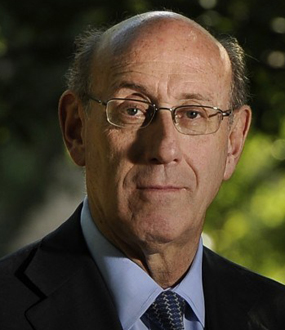

WEC Member Forum
Host
Sharon Epperson CNBC Senior Personal Finance Correspondent, Tyler Mathisen Co-anchor of "Power Lunch" & Events Strategy Vice President, Andrew Ross Sorkin Co-anchor of “Squawk Box”
Speakers
Ken Feinberg, Kenneth R. Feinberg Law Offices
Tsedal Neeley, Harvard Business School, Naylor
Mary-Frances Winters, The Winters Group, Founder & CEO
WEC Member Forum
A discussion on mediating the workplace's most polarizing issues at the moment, including balancing hybrid work, encouraging diversity and inclusion in the C-suite, and political division.
Key Points
- There is robust evidence that the most productive workers can work from anywhere rather than just work from home. They are typically more satisfied and appreciate their autonomy.
- Hyperproductivity and micromanagers negatively affect an individual's productivity.
- Create a "brave space" to be vulnerable with coworkers and become more educated on topics such as race, gender, sexuality, and many other factors
- There will be equality once we can no longer predict workplace outcomes based on someone's identity.
- Executives must maintain full transparency with workers and allow them to have some degree of influence in a decision that affects them.
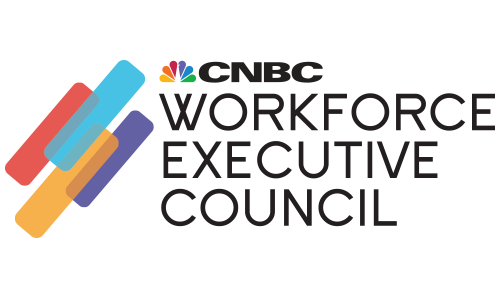

WEC Member Town Hall
Host
Jen Geller, CNBC Senior Councils Editor
Speakers
WEC Member Town Hall
Open discussion on the issues most important to council members.
Key Points
- Everyone is working harder and smarter than ever before, making burnout a major concern for most organizations.
- Workforce restructuring, working with those who remain, and integrating new employees in the virtual space are also challenging for organizations.
- Guidance on mandating vaccines is a concern for employers considering HIPAA laws, state laws, return statuses, many other factors.
- A consideration employers can make is to provide documentation to essential employees that helps them receive their vaccine smoothly. This includes incentives such as donations.
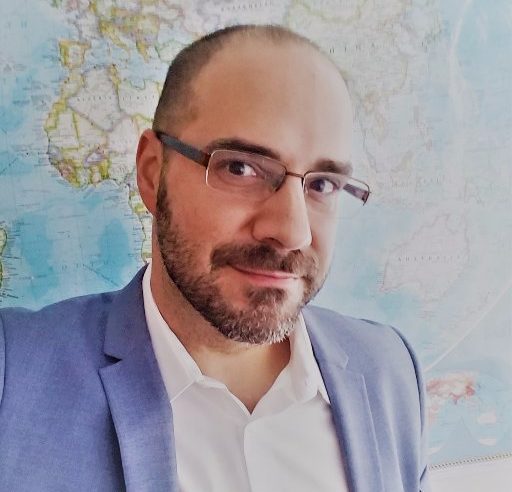
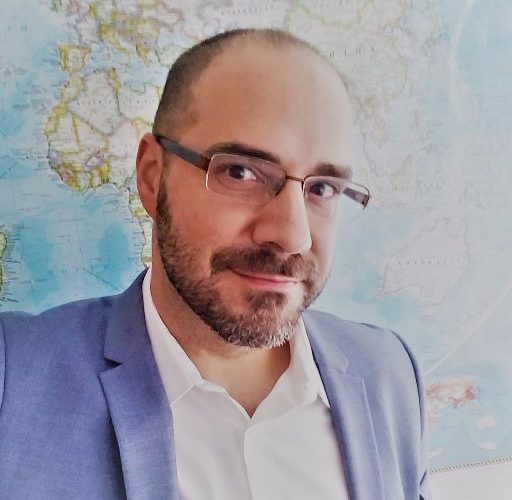
Facts, Vax and Masks
Host
Sharon Epperson, Senior Personal Finance Correspondent, CNBC
Speakers
Josh Michaud, The Henry J. Kaiser Family Foundation Associate Director for Global Health Policy
Dr. Guarav Suri, San Franciso State University Assistant Professor of Psychology
Facts, Vax and Masks
How to create an atmosphere of trust, transparency and safety for the next phase of the pandemic.
Key Points
- Every state is facing the challenge of identifying vaccination plans. Each state will prioritize differently.
- The challenges the workforce is facing in setting policies around vaccines are meeting the demand. Until there is a supply there are slim chances for organizations to place mandates.
- According to Josh Michaud, "getting the workforce psychologically ready or providing the information that they need to be assured that these vaccines are safe and effective, and it might be a good idea to get these vaccines may be an important role to play here."
- Increase in confidence, increase in vaccination.


